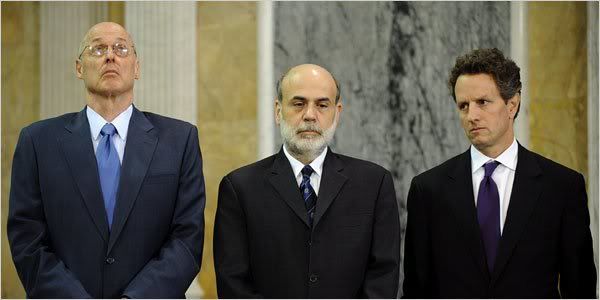In “The Big Dither” Paul Krugman warns:
There’s a growing sense of frustration, even panic, over Mr. Obama’s failure to match his words with deeds. The reality is that when it comes to dealing with the banks, the Obama administration is dithering. Policy is stuck in a holding pattern.
Here’s how the pattern works: first, administration officials, usually speaking off the record, float a plan for rescuing the banks in the press. This trial balloon is quickly shot down by informed commentators. Then, a few weeks later, the administration floats a new plan. This plan is, however, just a thinly disguised version of the previous plan, a fact quickly realized by all concerned. And the cycle starts again.
Welcome to Monty Python’s Flying Bank Bailout Circus. Everything is under control. Nudge, nudge. Wink, wink . . .
Say no more, say no more.


 One tenth of the $700 billion bailout to be footed by U.S. taxpayers is projected to go to the pay and bonuses of Wall Street bankers. The same captains of finance who sent the world into a financial meltdown are now going to be rewarded handsomely.
One tenth of the $700 billion bailout to be footed by U.S. taxpayers is projected to go to the pay and bonuses of Wall Street bankers. The same captains of finance who sent the world into a financial meltdown are now going to be rewarded handsomely.